Forgery & Counterfeiting Defense Attorney in Jacksonville
In Florida, forgery has a narrow legal meaning—the term applies only to the false creation, alteration or copying of a specific list of documents and items. These include public records and other documents that have legal impact, such as wills, bills of lading, affirmation of legal service, receipts, and tickets or passes for travel by common carrier.
Florida Forgery Charges
In Florida, a person is guilty of forgery if they:
- Falsely make, alter, forge or counterfeit and item or document, provided such item or document is listed within the statute, and
- The act is performed with the intent to defraud or injure another
The statute uses technical terminology that may not be immediately recognizable, such as “an order, acquittance or discharge for money or other property” (in general terms, a release of a claim or statement that you no longer owe a debt). An experienced Jacksonville forgery attorney will be able to determine whether there is an argument that the item or document in question does not fall within one of the categories set forth in the statute.
Penalties for a Jacksonville Forgery Conviction
The crime of forgery is a felony of the third degree in Florida. That means that a forgery conviction may carry a sentence of up to five years in prison, along with a fine of up to $5,000. The judge in a forgery case has broad discretion to consider various factors in sentencing—there is no mandatory minimum sentence required in most cases. In some circumstances, your defense lawyer may be able to successfully negotiate a plea agreement that involves only probation and a fine, or argue to the court for a minimal sentence.
Criminal convictions may also have indirect consequences. For instance, a forgery conviction may impact your eligibility for certain jobs, it might impact your credibility as a witness in future proceedings, and have other indirect consequences on your life. For instance being a felony, if convicted of forgery one will lose their right to vote and to possess firearms.
Forgery-Related Crimes in Florida
Specific Forgery and Counterfeiting Provisions
In addition to the general forgery statute described above, the forgery and counterfeiting section of the Florida Statutes includes several provisions for specific types of forgery and counterfeiting. These include bills, checks, drafts, and notes. Like general forgery, forgery of these items is a felony of the third degree. In addition, possession of these same forged or counterfeited items with intent to pass them to defraud or injure another person is a felony of the third degree.
Forgery or counterfeiting of private labels, such as the creation of counterfeit goods bearing someone else’s trademark, is also a separate crime. The seriousness of charges in connection with counterfeit labels depends on the specifics of the crime, and may range from a misdemeanor to a felony of the first degree.
Uttering Forged Instruments
The crime of forgery relates specifically to the creation or alteration of the document or item with the intent to injure or defraud someone. But, another crime often occurs in connection with forgery: uttering forged instruments. A person commits the crime of uttering a forged instrument when they:
- Pass or use a false, forged or altered instrument or document listed in the forgery statute, and
- Know that it is false, altered, forged or counterfeited, and
- Did so with the Intent to defraud or injury any person
Uttering forged instruments is also a felony of the third degree. That means that, like forgery, a Florida uttering charge can result in up to five years in prison and a fine of up to $5,000.
Consult an Experienced Jacksonville Forgery Lawyer
Forgery and forgery-related charges can be complicated, but that doesn’t mean you’re out of options. You may be able to fight the charges against you—it’s the prosecutor’s responsibility to prove every element of the crime beyond a reasonable doubt. Some elements may be difficult to prove. For example, if you attempted to spend or deposit counterfeit money, the state will have to prove that you knew it wasn’t real.
Even when the evidence against you is strong, a seasoned criminal law attorney may be able to find weaknesses in the case, or negotiate for a favorable plea agreement for you. If you’ve been charged with forgery or a related crime, make a free consultation with attorney Matthew Lufrano your next step.
Mr. Lufrano has been fighting to protect people charged with crimes in and around Jacksonville for more than a dozen years and has the knowledge and experience you’re looking for. Call us now at 904-513-3905 or fill out the contact form on this site to learn more.
